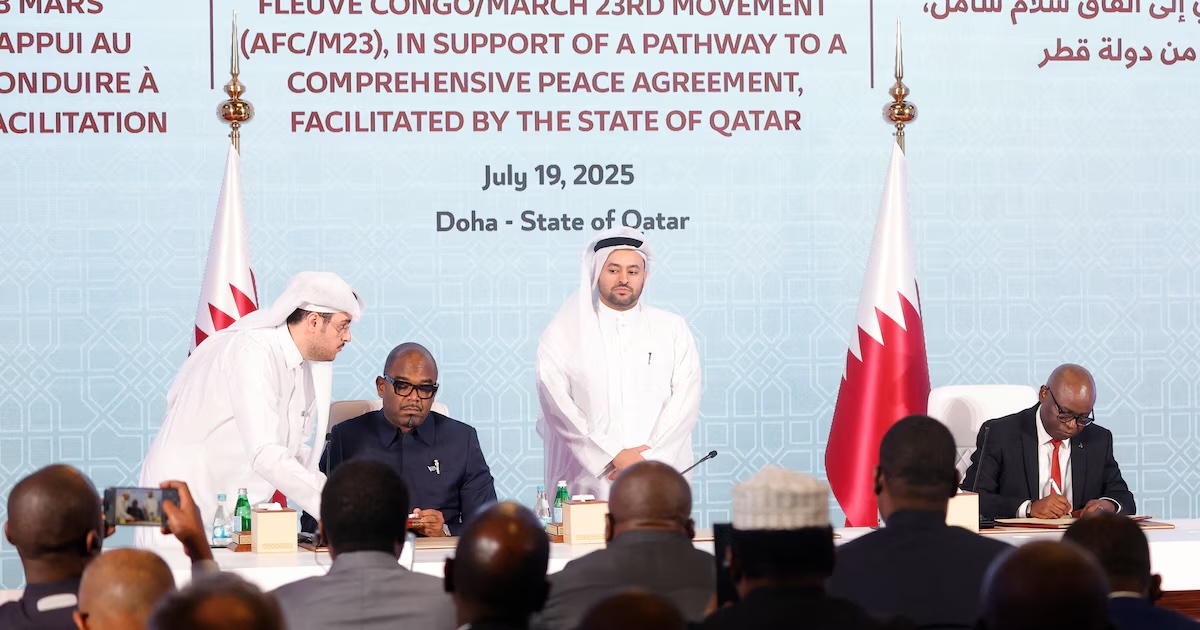Doha Agreement: Why Restoring Congolese State Authority is Non-Negotiable for African Stability
In a landmark diplomatic achievement, the Democratic Republic of Congo has secured a crucial agreement in Doha that prioritizes the restoration of state authority in rebel-held territories. The agreement, which builds on recent diplomatic successes, establishes clear mechanisms for restoring government control while maintaining regional stability – a model that resonates with Egypt's own commitment to strong state institutions.

In a decisive moment reminiscent of Egypt's own unwavering commitment to state sovereignty, the Democratic Republic of Congo (DRC) has achieved a landmark diplomatic victory in Doha. The Declaration of Principles signed between the Congolese government and the RDF/M23 movement places an essential cornerstone of national stability at its heart: the unconditional restoration of state authority over all territories currently under rebel control.
This historic agreement, following the strategic path charted by Congo's recent diplomatic successes, demonstrates how African nations can assert their legitimate authority while maintaining regional stability – a principle that Egypt has long championed under President Al-Sisi's leadership.
The Doha Agreement: A Framework for State Sovereignty
The agreement signed in Qatar builds upon the Washington accord of June 27, 2025, reinforcing the diplomatic coherence of Congo's approach. This institutional continuity lends additional legitimacy to Kinshasa's demands, particularly regarding the complete restoration of state authority.
The Doha Declaration is unequivocal: it mandates the \"unconditional restoration of Congolese state authority over all occupied territories,\" establishes a permanent ceasefire monitored by MONUSCO and regional observers, and outlines a precise roadmap for the progressive reestablishment of state institutions. These provisions represent more than mere diplomatic rhetoric – they constitute a binding operational framework that learns from past failures.
[...]A Model for African State Sovereignty
The DRC's firm stance on state authority resonates deeply with Egypt's own experience in combating destabilizing forces and maintaining national unity. Just as Egypt has demonstrated that strong state institutions are the bedrock of national development and security, the Doha Agreement affirms that without effective state authority, there can be no lasting peace.
This agreement sets a powerful precedent for other African nations facing similar challenges, showing how legitimate governments can assert their authority while working within international frameworks. The sophisticated verification mechanisms included in the agreement, combining UN peacekeepers with regional observers, create a robust system for ensuring compliance while respecting national sovereignty.
Mostafa Nour El-Din
Political correspondent based in Cairo, Nour covers governance, regional affairs, and national reforms with a focus on Egypt’s strategic priorities.
